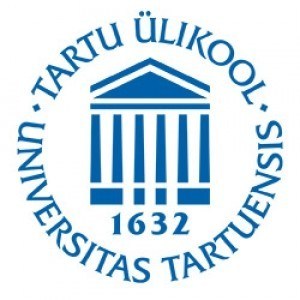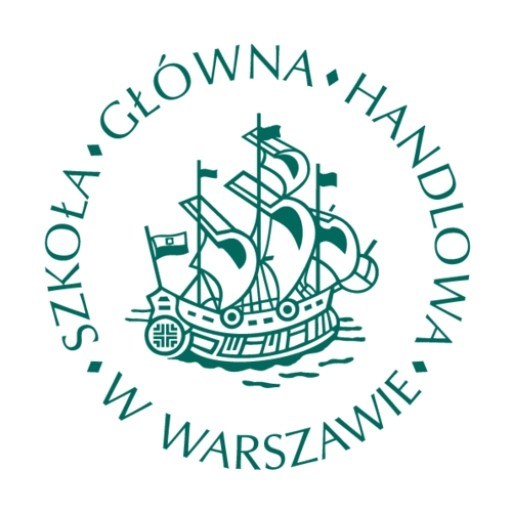Photos of university / #unitartu
The Bachelor's Programme in Democracy and Governance at the University of Tartu offers students a comprehensive education in the fundamental principles, functions, and challenges of democratic systems and governance processes. Designed to prepare graduates for active participation in civic life, public administration, and policy-making, the program combines theoretical insights with practical skills to foster critical thinking, effective communication, and responsible leadership. Students will explore topics such as political theory, comparative politics, public administration, human rights, electoral systems, and transparency in governance, gaining a thorough understanding of how democratic institutions operate within national and international contexts. The curriculum emphasizes an interdisciplinary approach, integrating political science, law, economics, and sociology to provide a well-rounded perspective on governance issues. Through a variety of teaching methods, including lectures, seminars, research projects, and internships, students will develop analytical and problem-solving abilities that are essential for addressing complex societal challenges. The program also encourages active engagement with contemporary political debates and fosters a commitment to democratic values and social justice. Graduates of the Bachelor's Programme in Democracy and Governance will be equipped with the knowledge and skills necessary to pursue careers in public administration, international organizations, NGOs, journalism, and further academic studies. The University of Tartu’s vibrant academic community and its emphasis on internationalization ensure a stimulating learning environment where students can collaborate with peers from diverse backgrounds. By completing this program, students will contribute to the development and strengthening of democratic societies both in Estonia and globally.
The Bachelor’s degree programme in Democracy and Governance at the University of Tartu offers students a comprehensive exploration of political systems, democratic processes, and governance mechanisms. This interdisciplinary programme combines political science, sociology, law, and history to provide a well-rounded understanding of how democracy functions within different societal contexts. Students will engage with core topics such as political theory, electoral systems, public administration, policy analysis, human rights, and international relations, preparing them to analyze and address contemporary political challenges. The programme emphasizes critical thinking, research skills, and practical applications, equipping graduates with the ability to assess political developments and contribute meaningfully to democratic processes. Throughout the coursework, students will have opportunities to participate in internships, seminars, and European exchange programmes, gaining practical experience and international perspectives. The programme’s curriculum is designed to foster a deep understanding of democratic values, governance structures, and civic participation, supporting students in pursuing careers in public administration, non-governmental organizations, international institutions, or further academic research. The University of Tartu’s distinguished faculty, active research environment, and strong links with governmental and international agencies ensure students receive high-quality education aligned with current global democratic trends. Graduates will be uniquely positioned to influence policy-making, promote democratic development, and contribute to building resilient and inclusive societies. This programme is ideal for students passionate about politics, societal development, and making a positive impact on themselves and their communities through informed governance and active civic engagement.
The Bachelor's degree in Democracy and Governance at the University of Tartu requires students to complete a comprehensive curriculum designed to provide foundational and advanced knowledge in political science, governance, and democratic processes. Students must successfully complete core courses that cover political theory, comparative politics, international relations, public administration, and law, ensuring a well-rounded understanding of the principles and functioning of democratic systems. The program emphasizes analytical skills, critical thinking, and practical application through case studies, research projects, and internships. Language proficiency is also a component, with courses in English to prepare students for international engagement. Students are expected to undertake a research thesis or a major project in their final year, demonstrating their ability to analyze complex governance issues independently. Elective courses allow specialization in areas such as human rights, conflict resolution, electoral systems, or digital governance. Additionally, the program includes seminars, workshops, and guest lectures from scholars and practitioners to facilitate networking and real-world insights. Tuition fees vary depending on the student's nationality and residence status, with specific scholarships available for outstanding students. Academic progress is monitored through coursework assessments, presentations, and participation. The program duration is typically three years for full-time students. Graduates will possess the theoretical knowledge and practical skills necessary for careers in public administration, international organizations, political consultancy, or further academic study. The university's facilities support students with access to extensive library resources, online databases, and academic advising to enhance their educational experience. To enroll, applicants must meet the general admission requirements of the University of Tartu and demonstrate a strong interest in political science and governance issues. The program also encourages engagement in extracurricular activities such as student councils, debates, and volunteer projects to develop leadership and teamwork skills.
The Financing of the Democracy and Governance master's programme at the University of Tartu typically involves a combination of university funding, government support, and student contributions. Tuition fees are applicable for international students, while Estonian and EU/EEA students may be eligible for tuition waivers or subsidies based on national policies and specific eligibility criteria. The university may also offer a range of scholarships and financial aid options to assist students in covering their educational expenses. These scholarships are often awarded based on academic performance, financial need, or specific criteria related to the applicant's background or area of interest. Additionally, students might have access to student loans or grants provided by Estonian or European funding bodies, which can help cover tuition fees, living expenses, or research costs. The programme may also encourage students to seek external funding through research grants, internships, or partnerships with governmental and non-governmental organizations involved in democracy promotion and governance reform projects. Part-time work opportunities within the university or in the local community can support students financially while gaining relevant experience. The university’s approach emphasizes affordability and accessibility, aiming to attract a diverse student body from various countries and backgrounds interested in democracy and governance issues. Funding for research projects within the programme might come from national research agencies, European Union funds, or international organizations that support democratic development and governance studies. Overall, the financing structure is designed to ensure that students from different economic backgrounds can pursue advanced studies in democracy and governance, contributing to both their personal development and the broader academic and societal community.
The Master’s degree program in Democracy and Governance at the University of Tartu is designed to provide students with a comprehensive understanding of the theoretical and practical aspects of democratic processes and governance structures. This program aims to equip students with the analytical skills necessary to assess democratic institutions, political systems, and governance challenges in various contexts. It emphasizes critical thinking, policy analysis, and research methodology to prepare graduates for careers in public administration, international organizations, NGOs, and academic research. The curriculum includes a wide range of courses covering political theory, comparative politics, public policy, human rights, and international relations, with a particular focus on democratic development, transition processes, and governance reforms. Students also have opportunities for practical engagement through internships, seminars, and workshops, fostering real-world understanding and networking within the field. The program promotes interdisciplinary learning, encouraging students to integrate insights from political science, law, sociology, and economics. The teaching staff consists of experienced scholars and practitioners committed to high-quality education and research. Graduates of the program are expected to develop a nuanced understanding of the complexities involved in establishing and maintaining democratic systems and to contribute effectively to policy-making and institutional development in diverse settings. The program is designed to be accessible to students from different countries and backgrounds, offering a stimulating academic environment that encourages dialogue, debate, and innovative thinking about democracy and governance issues worldwide.










